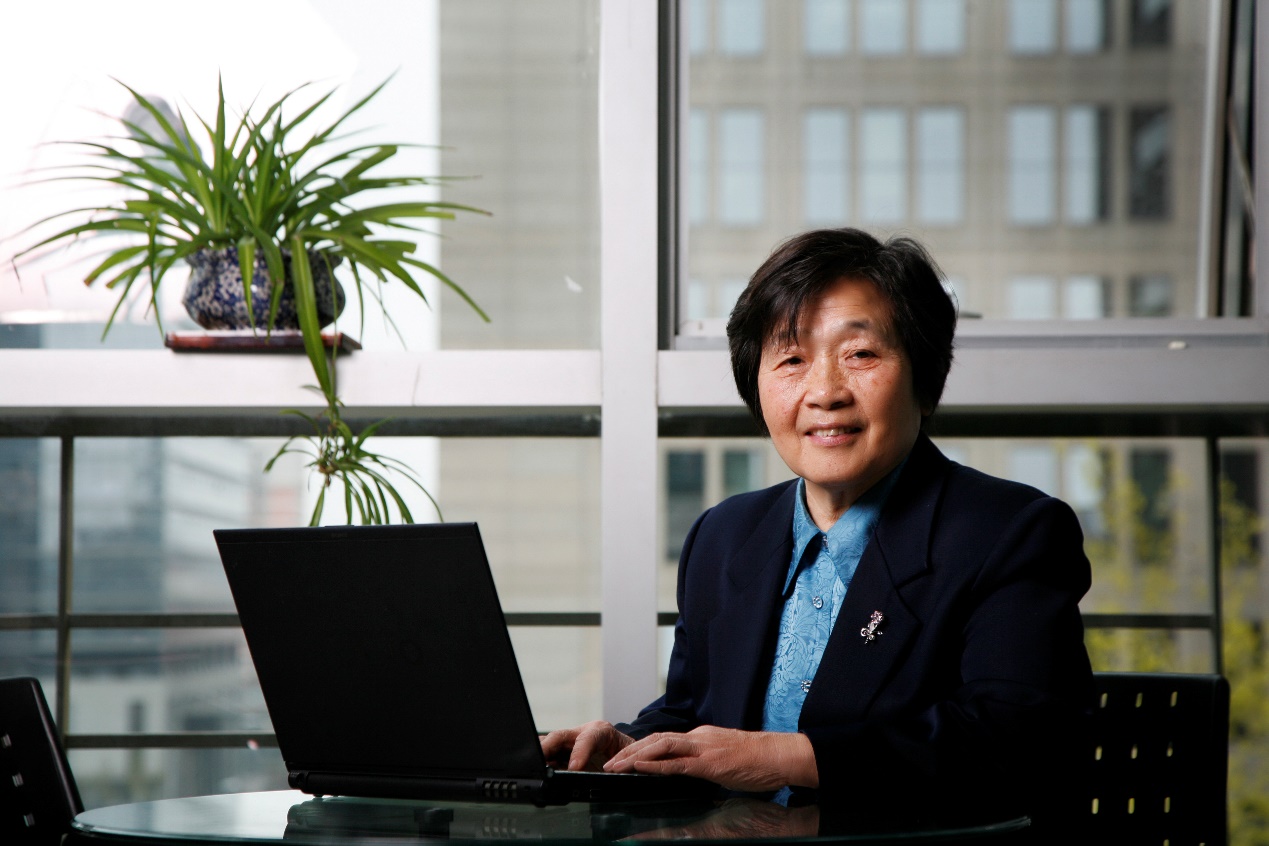The Technical Committee on Computer Vision of China Computer Federation (CCF-CV) has recently announced the 2022 recipients of CCF-CV awards. Professor Xiaoqing Ding from the Department of Electronic Engineering of Tsinghua University received the CCF-CV Lifetime Academic Contribution Award for her longstanding research efforts in the study of large-scale complex pattern recognition including optical character recognition (OCR) and biometric identification.

Recipient of the CCF-CV Lifetime Academic Contribution Award
Professor Xiaoqing Ding
Professor Ding graduated from the Department of Radio (now Department of Electronic Engineering) of Tsinghua University in 1962. As a recipient of the Golden Graduation Medal, she continued to pursue an academic career at Tsinghua University as a faculty member after graduation.
Professor Ding has pioneered research on Chinese character recognition since the 1980s. For the challenging problem of large scale Chinese character recognition, she proposed the theory of information entropy for pattern recognition, and explored statistical pattern recognition approaches instead of structural pattern analysis approaches, laying a solid foundation for subsequent research in this area. Professor Ding has achieved cutting-edge research outcomes in various areas of character and document recognition, and developed TH-OCR series software products which supports multilingual (Simplified Chinese, Traditional Chinese, English, Japanese, Korean, Mongolian, Tibetan, Uighur/Kazakh/Kirghiz, Arabic) printed document recognition and hi-fidelity intelligent document digitization, offline and online handwriting recognition and form recognition. The TH-OCR CJK (Chinese, Japanese, Korean) text recognition engines were licensed to Nuance and further integrated into Microsoft Office Document Imaging in 2003.
Starting in 2000, she focused her research interests on biometric identification and authentication. The developed TH-ID face recognition system has achieved top performance in many domestic and international competitions. It ranked first among all tasks in the Face Authentication Test 2004 (FAT2004) and won the award of “Overall Best Performing Face Verification Algorithm”. In the world-famous Face Recognition Vendor Test 2006 (FRVT2006), TH-ID also “performed better than humans compared with the FRVT2006 human benchmark”. Since 2005, the TH-ID face recognition system has been deployed at the customs ports in Shenzhen, Zhuhai, Beijing, and Shanghai etc. The TH-ID series software products have also been licensed to many well-known leading domestic and international famous companies.
At present, the colleagues in the THOCR Lab led by Professor Ding are still active at the forefront of pattern recognition and artificial intelligence, including health care monitoring, etc. They are working towards the goal of real-time, non-invasive, accurate, and objective measurement and regulation of physical health. Inspired by traditional Chinese medicines, they developed recognition engines for analyzing pulse waves, tongue manifestations, ECG waves, and respiratory waves. They also investigated biofeedback technologies including electrical stimulation, breathing adjustment, music therapy and other means to regulate emotions, relieve stress, and improve concentration.
Professor Ding emphasized that the CCF-CV Lifetime Academic Contribution Award should not be regarded as an honor of her own. Instead, she took it as a team honor. It was the outcome from decades of continuous endeavors made by all members in the THOCR Lab.
Professor Ding has published more than 600 papers, authored or co-authored 7 books, and held more than 30 patents. Professor Ding has received the National Scientific and Technological Progress Awards for four times (second-class awards in 1999, 2003, and 2008, third-class award in 1992). She has also received more than twenty Provincial or Ministerial awards. In acknowledgement of her achievements in developing world-leading technologies and systems for character recognition and biometric identification, she has been named as an IAPR Fellow and an IEEE Life Fellow.